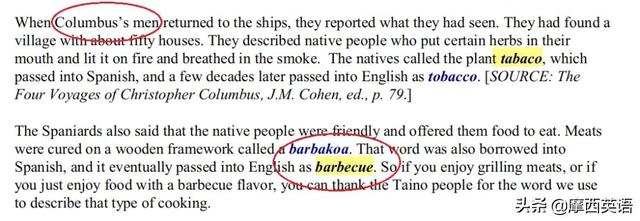英语单词每日一组(每日20个英语单词)
1. minimum [ˈmɪnɪməm]
adj.最低的,最小的;n.最小量,最低限度
the smallest amount or number allowed or possible
参考例句:
1. What is the minimum price? 最低价是多少?
2. Today's minimum temperature is 10℃. 今天的最低气温是10℃。
2. compound [ˈkɒmpaʊnd]
n.化合物;大院;adj.化合的;vt.加重;使化合
a chemical that combines two or more elements
参考例句:
1. Air is a mixture, not a compound of gases. 空气是气体的混合物,不是化合物。
2. How many households in the compound? 院内有几家住户?
3. graph [græf]
n.图表,图解,曲线图
a picture which shows how two sets of information or variable amounts are related , usually by lines or curves
参考例句:
1. Such a graph is defined to be a contact network. 我们把这样的图定义为一个接触网络。
2. Our foundings are displayed in the form of a graph. 我们的调查结果已用图表列出。
4. famine [ˈfæmɪn]
n.饥荒;严重的缺乏
when there is not enough food for a great number of people , causing illness and death , or a particular period when this happens
参考例句:
1. We're collecting for the famine victims. 我们正在为遭受饥荒的灾民募款。
2. Famine stared us in the face. 饥荒迫在眉睫。
5. upward [ˈʌpwəd]
adj.向上的,上升的;adv.向上,上升
moving towards a higher position , level or value
参考例句:
1. The birds flew upward. 鸟儿向上飞去。
2. Prices have an upward tendency. 价格有上升的趋势。
6. keen [ki:n]
adj.热心的;敏锐的;激烈的;锋利的
very interested , eager or wanting (to do) something very much
参考例句:
1. There is keen competition between the two motorcar firms. 两家汽车公司之间存在着激烈的竞争。
2. The children are mad keen to go to the zoo. 孩子们非常想去动物园。
7. withdraw [wɪðˈdrɔ:]
vt.收回,撤消,撤退;vi.缩回,退出,撤退
to take or move out or back, or to remove
参考例句:
1. I want to withdraw a statement I made earlier. 我想收回我早些时候发表的一项声明。
2. The general decided to withdraw his soldiers. 那位将军决定撤军。
8. behalf [bɪˈhɑ:f]
n.利益,方面;支持,赞成,代表
representing ; instead of
参考例句:
1. Ken is not present, so I shall accept the prize on his behalf. 肯没有出席,所以我将代表他领奖。
2. They fixed on him to speak on their behalf. 他们已经确定他作为代表发言。
9. whip [wɪp]
n.鞭子,鞭打,奶油甜食,车夫,组织秘书;vt.抽出,鞭打,捆扎,搅拌,打败;vi.突然移动,飘浮
a piece of leather or rope which is fastened to a stick , used for hitting animals or people
参考例句:
1. The cruel man lashed the horse with his whip. 那个粗暴的人用鞭子抽马。
2. The cruel master beat his slaves with a whip. 残酷的主人鞭打他的奴隶。
10. routine [ru:ˈti:n]
n.例行公事,惯例;adj.例行的,常规的
a usual or fixed way of doing things
参考例句:
1. It is everyday routine. 这是每天的例行公事。
2. She found the hospital routine slightly dull. 她感到医院的工作有点枯燥乏味。
11. reduction [rɪˈdʌkʃn]
n.减少,减低,减缩;减少,减低
when you make or when something becomes smaller in size , amount , degree , importance ,
参考例句:
1. Reduction in income tax will be welcomed with open arms. 减少所得税将受到热烈欢迎。
2. You will have a reduction for cash. 付现金可以打折扣。
12. setting [ˈsetɪŋ]
n.背景
the position of a house or other building
参考例句:
1. The play has its setting in Vienna. 该剧以维也纳为背景。
2. Where and when a story takes place is called the setting. 故事发生的地点和时间称为故事背景。
13. unkind [ˌʌnˈkaɪnd]
adj.不仁慈的,不和善的
slightly cruel
参考例句:
1. He was never unkind to her. 他从未亏待过她。
2. Unkindness often reacts on the unkind person. 恶人有恶报。
14. cassette [kəˈset]
n.卡式录音带盒;卡式胶卷盒,盒式磁带
a flat rectangular device containing a very long strip of magnetic material that is used to record sound and/or pictures , or a machine that uses such devices
参考例句:
1. He inserted a cassette into the machine. 他把一盒录像带放入机器。
2. And let's not forget our cassette player and some tapes. 还别忘了带上我们的卡式录音机和一些录音带。
15. particle [ˈpɑ:tɪkl]
n.微粒,颗粒,粒子;小品词,语助词
a word or a part of a word which has a grammatical purpose but often has little or no meaning
参考例句:
1. There is not a particle of truth in what you said. 你所说的没有一句是实话。
2. This particle has a very small mass. 这种粒子的质量很小。
16. establishment [ɪˈstæblɪʃmənt]
n.建立,确立,确定;企业,机构;当权人物
a business or other organization , or the place where an organization operates
参考例句:
1. With the establishment of major new markets, the economy is thriving. 随着重大新市场的建立,经济越来越兴旺。
2. The establishment of the business took several years. 创办这个公司花了好几年时间。
17. tropical [ˈtrɒpɪkl]
adj.热带的,热带的,炎热的
from or relating to the area between the two tropics
参考例句:
1. You must grow these tropical flowers in a glasshouse. 你必须把这些热带花卉种在温室里。
2. This disease is widespread in tropical areas. 这种疾病在热带地区蔓延很广。
18. cashier [kæˈʃɪə(r)]
n.出纳员,收银员
a person whose job is to receive and pay out money in a shop , bank , restaurant , etc .
参考例句:
1. The young cashier gave a patient sigh. 年轻的出纳员忍耐地叹了一口气。
2. One brother is a cashier and the other sells. 两个兄弟一位当出纳,另一位当店员。
19. lest [lest]
conj.唯恐,以免
in order to prevent any possibility that something will happen
参考例句:
1. Let me put down your telephone number lest I forget it. 让我先记下你的电话号码,以免忘了。

2. Be careful lest you fall from that tree. 要当心,以免从树上摔下来。
20. refresh [rɪˈfreʃ]
vt.使...生气蓬勃,提起精神,恢复精神;vi. 恢复精神;喝饮料,吃点心;补充给养
to make someone less hot or tired
参考例句:
1. I looked at the map to refresh my memory of the road. 我看看地图以唤起对这条路的回忆。
2. I think I'll just refresh myself with a cup of tea before I go to meet the children. 我想在见孩子们之前先喝杯茶来恢复一下精神。
,免责声明:本文仅代表文章作者的个人观点,与本站无关。其原创性、真实性以及文中陈述文字和内容未经本站证实,对本文以及其中全部或者部分内容文字的真实性、完整性和原创性本站不作任何保证或承诺,请读者仅作参考,并自行核实相关内容。文章投诉邮箱:anhduc.ph@yahoo.com






